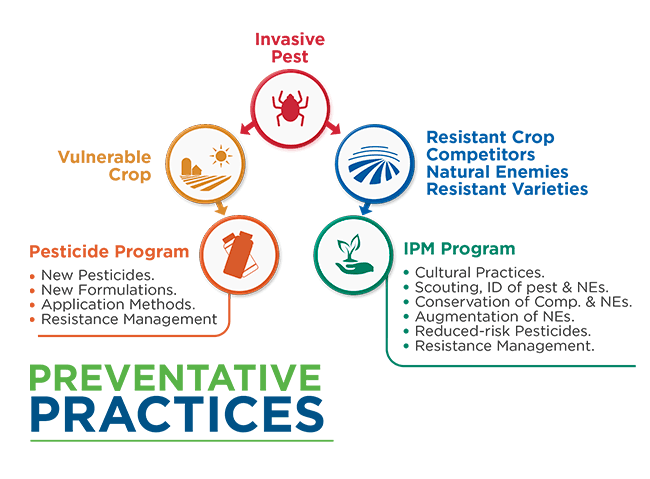The Council for Agricultural Science and Technology, CAST, published an essay about the benefits of crop protection technologies. The document is part of a series titled The Need for Agricultural Innovation to Sustainably Feed the World by 2050.
June 2017.
The authors of the essay highlight the importance and contributions of crop protection technologies and chemical fertilizers to agricultural productivity. However, they state that in order to guarantee modern food security, it is required to advance in the betterment of current tools, maintain a multidisciplinary focus in scientific innovations, and advance in the implementation of Integrated Pest Management plans.
Pest resistance, the need of new modes of action, the high costs of new product development and registration, the use of biological control products, and the treated seeds technologies; are all current trends that distinguish modern day crop protection technology dynamics.

Pest management programs for vulnerable and resistant crops.
When an invasive pest attacks a vulnerable crop, one that is protected only by a pesticide program, the only options are to develop new pesticides and formulations, optimize application methods, and manage pesticide resistance. A more sustainable approach is to create a resistant crop by planting resistant varieties, conserving natural enemies (NEs) and species that are competitors (comp.) with the pest, employing cultural practices that minimize pest pressure (possibly releasing additional NEs), applying pesticides that have few nontarget effects, and minimizing the development of pesticide-resistant pests (Demirozer et al. 2012; Reitz et al. 2003).
Adapted from Crop Protection Contributions toward Agricultural Productivity, CAST Issue Paper, 2017.
Additionally, the authors mention multiple tools and technologies that improve the application of products such as (1) drones and other devices that allow for a systematic surveillance and monitoring to achieve an efficient weed control. (2) Spray system technologies, and (3) the development of new crops or planting tools, especially focused toward vegetable crops.
To read the summary, click here.
To read the complete paper, click here.
For more information, visit: https://www.cast-science.org















